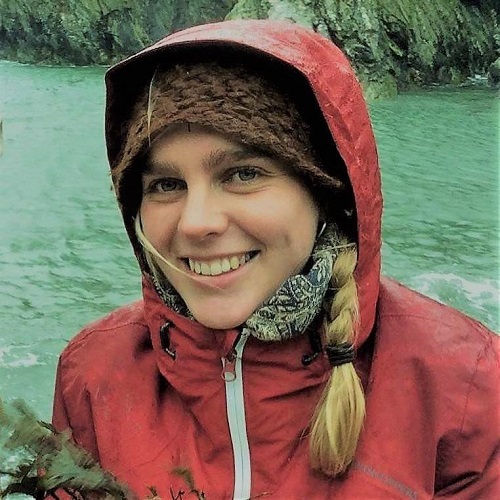Claire Carrington

PhD: Understanding responses of coastal seabirds to local and daily-scale meteorological variation
Location: Bangor University
I began my academic career in 2013 studying a BSc in Environmental Science at Bath Spa University. However, after completing the first year of this course it was clear that my interests lay in Ecology and Conservation. Wanting to learn more about these topics, I transferred to Bangor University where I enrolled on the second year of a BSc in Applied Terrestrial and Marine Ecology. Through this inspirational course I learnt the fundamental theories underpinning conservation action and explored the ecology of a diverse range of ecosystems. For my honors project I examined the effects of feral goat grazing on deciduous woodland regeneration in Snowdonia. In both the second and third year of my BSc I achieved the highest overall mark in the School of Natural Sciences and upon graduating in 2019 with first-class honors, I was awarded the Athena SWAN Gender Equality Scholarship. With this financial backing and captivated by the Marine Sciences, I enrolled on an MSc in Marine Environmental Protection at Bangor University. For my MSc research I investigated the relative influences of meteorological conditions on the foraging behavior and habitat-use of European Shags in Conwy Bay, North Wales. After graduating with a Distinction, I went on to work with the Sea Watch Foundation and the European Commission to assess the bycatch risk of protected seabirds and cetaceans by fishing activities in the northeast Atlantic. More recently I have begun training as a bird ringer and aim to gain a seabird ringing license with the British Trust of Ornithology.
In a rapidly warming world, understanding the behavioural responses of organisms to variable environmental conditions in the present is key to predicting the impacts of future climate change. However, organisms do not respond directly or homogeneously to regional processes or global averages; they respond heterogeneously to local and daily-scale processes occurring in their immediate environment. Despite this, studies investigating the responses of animals, particularly seabirds, to variations in local and daily meteorological conditions are scarce.
My PhD research aims to address this knowledge gap by studying the Phalacrocoridae (European shag, great cormorant) occupying Conwy Bay, North Wales. Biological data will be collected using a variety of methods including GPS tracking devices, novel camera trapping techniques, shore and vessel-based observational surveys and nest productivity monitoring. Concurrent environmental data will be recorded by in-situ instrumentation and simulated using high resolution hydrodynamic and 3D oceanographic models. Using these data to construct predictive models, I will investigate how the abundance, distribution, foraging behaviour and population demographics of a coastal seabird species respond to fine scale variations in environmental conditions.
